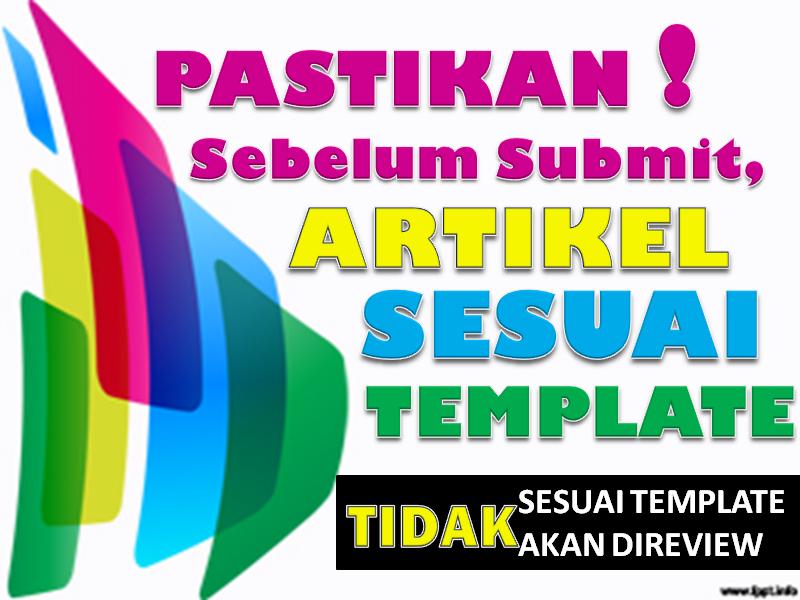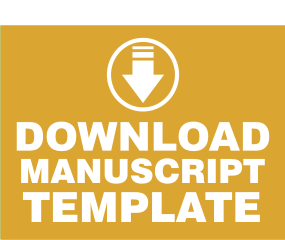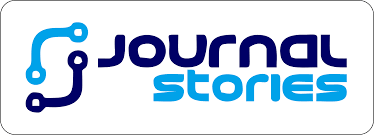The Implementation of Self-Assessment in Character Pillar Activities of Elementary School Students
(1) Sekolah Tinggi Pendidikan Holistik Berbasis Karakter
(2) Sekolah Tinggi Pendidikan Holistik Berbasis Karakter
(*) Corresponding Author
DOI: https://doi.org/10.26858/publikan.v14i1.59547
Abstract
Self-awareness is a person's ability to accept and understand their strengths and weaknesses so that they can develop their potential. Self-assessment is a tool that can be used to assess one's level of self-awareness. This research seeks to explore how 6-7-year-old students' awareness of themselves in assessing certain behaviors. The purpose of this study is to identify the application of self-assessment in character pillar activities in grade 1 students at SD Karakter, analyze students' perceptions of self-attitude and behavior on the tested character development aspects, and make recommendations for effective self-assessment development strategies to increase students' self-awareness. This study used a descriptive quantitative method with probability systematic sampling on 30 participants. The results show that self-assessment can measure students' self-awareness regarding generous, helpful, and cooperative attitudes and behaviors. Students and parents felt changes in behavior after the character pillar activities. Cooperation is the pillar concept that most often appears in students. This research proves that self-assessment can be used as a tool for student self-evaluation. Teachers can develop effective learning strategies based on students' self-assessment results.
Keywords
Full Text:
PDFReferences
Andrade, H. L. (2019). A Critical Review of Research on Student Self-Assessment. Frontiers in Education, 4(August), 1–13. https://doi.org/10.3389/feduc.2019.00087
Aricò, F. R., & Lancaster, S. J. (2018). Facilitating active learning and enhancing student self-assessment skills. International Review of Economics Education, 29, 6–13. https://doi.org/10.1016/j.iree.2018.06.002
Baas, D., Castelijns, J., Vermeulen, M., Martens, R., & Segers, M. (2015). The relation between assessment for learning and elementary students’ cognitive and metacognitive strategy use. British Journal of Educational Psychology, 85(1), 33–46. https://doi.org/10.1111/bjep.12058
Baehr, J. (2017). The Varieties of Character and Some Implications for Character Education. Journal of Youth and Adolescence, 46(6), 1153–1161. https://doi.org/10.1007/s10964-017-0654-z
Batra, S. (2013). The Psychosocial Development of Children: Implications for Education and Society — Erik Erikson in Context. Contemporary Education Dialogue, 10(2), 249–278. https://doi.org/10.1177/0973184913485014
Bender, J., O’Connor, A. M., & Evans, A. D. (2018). Mirror, mirror on the wall: Increasing young children’s honesty through inducing self-awareness. Journal of Experimental Child Psychology, 167, 414–422. https://doi.org/10.1016/j.jecp.2017.12.001
Brown, G. T. L., Andrade, H. L., & Chen, F. (2015). Accuracy in student self-assessment: directions and cautions for research. Assessment in Education: Principles, Policy and Practice, 22(4), 444–457. https://doi.org/10.1080/0969594X.2014.996523
Brown, G. T. L., & Harris, L. R. (2014). The future of self-assessment in classroom practice: reframing self-assessment as a core competency. Frontline Learning Research, 2(1), 22–30. https://doi.org/10.14786/flr.v2i1.24
Burner, T., & Svendsen, B. (2020). Activity Theory—Lev Vygotsky, Aleksei Leont’ev, Yrjö Engeström (pp. 311–322). https://doi.org/10.1007/978-3-030-43620-9_21
Creswell, J. W., & Creswell, J. D. (2018). Research Design: Qualitative, Quantitative, and Mixed Method Approaches (5th ed.). SAGE.
Davidson, M., Lickona, T., & Khmelkov, V. (2014). SMART & GOOD SCHOOLS A New Paradigm for High School Character Education. In and T. K. Larry Nucci, Darcia Narvaez (Ed.), Handbook of Moral and Character Education (Second Edi). Routledge.
Deci, E. L., & Ryan, R. M. (2016). Building Autonomous Learners. Building Autonomous Learners, 9–29. https://doi.org/10.1007/978-981-287-630-0
Eka Sapti Cahyaningrum, Sudaryanti, N. A. P., & Hudah, M. (2019). PENGEMBANGAN NILAI-NILAI KARAKTER ANAK USIA DINI MELALUI PEMBIASAAN DAN KETELADANAN. Jendela Olahraga, 4(2), 57. https://doi.org/10.26877/jo.v4i2.4005
Elmanora, E., Hastuti, D., & Muflikhati, I. (2017). Lingkungan Keluarga sebagai Sumber Stimulasi Utama untuk Perkembangan Kognitif Anak Usia Prasekolah. Jurnal Ilmu Keluarga Dan Konsumen, 10(2), 143–156. https://doi.org/10.24156/jikk.2017.10.2.143
Francisca, L., & Ajisuksmo, C. R. P. (2015). Keterkaitan Antara Moral Knowing, Moral Feeling, Dan Moral Behavior Pada Empat Kompetensi Dasar Guru. Jurnal Kependidikan: Penelitian Inovasi Pembelajaran , 45(2), 211–221.
Istiqomah, N., & Maemonah, M. (2021). Konsep Dasar Teori Perkembangan Kognitif Pada Anak Usia Dini Menurut Jean Piaget. Khazanah Pendidikan, 15(2), 151. https://doi.org/10.30595/jkp.v15i2.10974
Leggett, N. (2017). Early Childhood Creativity: Challenging Educators in Their Role to Intentionally Develop Creative Thinking in Children. Early Childhood Education Journal, 45(6), 845–853. https://doi.org/10.1007/s10643-016-0836-4
Lutfiah Zahra, S., & Miratul Hayati. (2022). Kondisi Self Awareness Pada Anak Korban Bullying. JECED : Journal of Early Childhood Education and Development, 4(1), 77–87. https://doi.org/10.15642/jeced.v4i1.1854
Megawangi, R. (2016). Pendidikan Karakter: Solusi yang Tepat untuk Membangun Bangsa (T. L. IHF (ed.); 5th ed.). Indonesia Heritage Foundation.
Megawangi, R. (2017). Menyemai Benih Karakter (T. L. IHF (ed.); Cetakan Ke). Indonesia Heritage Foundation.
Ndoye, A. (2017). Peer / Self Assessment and Student Learning. International Journal of Teaching, 29(2), 255–269. http://www.isetl.org/ijtlhe/
Oogarah-Pratap, B., Bholoa, A., & Ramma, Y. (2020). Stage Theory of Cognitive Development—Jean Piaget (pp. 133–148). https://doi.org/10.1007/978-3-030-43620-9_10
Panadero, E., Jonsson, A., & Botella, J. (2017). Effects of self-assessment on self-regulated learning and self-efficacy: Four meta-analyses. Educational Research Review, 22, 74–98. https://doi.org/10.1016/j.edurev.2017.08.004
Panadero, E., & Romero, M. (2014). To rubric or not to rubric? The effects of self-assessment on self-regulation, performance and self-efficacy. Assessment in Education: Principles, Policy and Practice, 21(2), 133–148. https://doi.org/10.1080/0969594X.2013.877872
Rini, T. A., & Cahyanto, B. (2020). Supporting Elementary Students Creative Writing Skill With Assessment as Learning. 487(Ecpe), 51–57. https://doi.org/10.2991/assehr.k.201112.010
Rofi’ah, U. A., Hafni, N. D., & Mursyidah, L. (2022). Sosial Emosional Anak Usia 0-6 Tahun dan Stimulasinya Menurut Teori Perkembangan. Az-Zahra: Journal of Gender and Family Studies, 3(1), 41–66. https://doi.org/10.15575/azzahra.v3i1.11036
Sanders, K., & Farago, F. (2018). Developmentally Appropriate Practice in the Twenty-First Century (pp. 1379–1400). https://doi.org/10.1007/978-94-024-0927-7_71
Sharma, R., Jain, A., Gupta, N., Garg, S., Batta, M., & Dhir, S. (2016). Impact of self-assessment by students on their learning. International Journal of Applied and Basic Medical Research, 6(3), 226. https://doi.org/10.4103/2229-516x.186961
Siregar, Y. E. Y., S, Z. M., W, P. A., Rachmadtullah, R., & Pohan, N. (2018). Self Regulation, Emotional Intelligence With Character Building In Elementary School. Proceedings of the Annual Civic Education Conference (ACEC 2018), 251(Acec), 315–318. https://doi.org/10.2991/acec-18.2018.72
Stajkovic, A. D., Bandura, A., Locke, E. A., Lee, D., & Sergent, K. (2018). Test of three conceptual models of influence of the big five personality traits and self-efficacy on academic performance: A meta-analytic path-analysis. Personality and Individual Differences, 120(August 2017), 238–245. https://doi.org/10.1016/j.paid.2017.08.014
Sugiyono. (2021). Metode Penelitian Kuantitatif, Kualitatif, dan R&D (3rd edtion, p. 464). Alfabeta.
Van Uden, J. M., Ritzen, H., & Pieters, J. M. (2014). Engaging students: The role of teacher beliefs and interpersonal teacher behavior in fostering student engagement in vocational education. Teaching and Teacher Education, 37, 21–32. https://doi.org/10.1016/j.tate.2013.08.005
Yan, Z., & Brown, G. T. L. (2017). A cyclical self-assessment process: towards a model of how students engage in self-assessment. Assessment and Evaluation in Higher Education, 42(8), 1247–1262. https://doi.org/10.1080/02602938.2016.1260091
Yoder, N. (2014). Self-Assessing Social and Emotional Instruction and Competencies: A Tool for Teachers. Center on Great Teachers and Leaders, 1–30.
Yong, N. H., & Abdullah, M. N. L. Y. (2022). Factors influencing school readiness and behavioral problems of elementary students. Cakrawala Pendidikan, 41(1), 225–236. https://doi.org/10.21831/cp.v41i1.41526
Yuliana, N., R, M. D., & Fahri, M. (2020). MODEL PENDIDIKAN HOLISTIK BERBASIS KARAKTER DI SEKOLAH KARAKTER INDONESIA HERITAGE FOUNDATION. EduHumaniora | Jurnal Pendidikan Dasar Kampus Cibiru, 12(1), 15–24. https://doi.org/10.17509/eh.v12i1.15872
Zee, M., & Koomen, H. M. Y. (2016). Teacher Self-Efficacy and Its Effects on Classroom Processes, Student Academic Adjustment, and Teacher Well-Being: A Synthesis of 40 Years of Research. Review of Educational Research, 86(4), 981–1015. https://doi.org/10.3102/0034654315626801
Zeidler, D. L., Berkowitz, M. W., & Bennett, K. (2014). Thinking (scientifically) responsibly: The cultivation of character in a global science education community. Contemporary Trends and Issues in Science Education, 41, 83–99. https://doi.org/10.1007/978-94-007-2748-9_7
Zimmerman, B. J., & Kitsantas, A. (2014). Comparing students’ self-discipline and self-regulation measures and their prediction of academic achievement. Contemporary Educational Psychology, 39(2), 145–155. https://doi.org/10.1016/j.cedpsych.2014.03.004
Article Metrics
Abstract view : 29 times | PDF view : 0 timesRefbacks
- There are currently no refbacks.
Copyright (c) 2024 Raisa Rakhmania, Yulia Pratiwi

This work is licensed under a Creative Commons Attribution-NonCommercial-ShareAlike 4.0 International License.
Publikasi Pendidikan : Jurnal Pemikiran, Penelitian dan Pengabdian Masyarakat Bidang Pendidikan
ISSN 2548-6721 (online), ISSN 2088-2092 (print)
Email: publikan@unm.ac.id

Publikasi Pendidikan is licensed under a Creative Commons Attribution-ShareAlike 4.0 International License.
Publikasi Pendidikan : Jurnal Pemikiran, Penelitian dan Pengabdian Masyarakat Bidang Pendidikan Indexed by
































